Russia
President Vladimir Putin commenced his fifth term in office with an inauguration ceremony held at the Kremlin on Tuesday.
This marks the beginning of another six-year tenure as Russia's leader. The event unfolded amidst a backdrop of political suppression, a controversial war in Ukraine, and an increasingly centralized power structure.
In a solemn ceremony within the Golden Palace of the Grand Kremlin, Mr. Putin placed his hand on the Russian Constitution, pledging to defend it. He addressed a crowd of selected dignitaries, emphasizing unity and resilience in the face of challenges.
Since his ascent to power in 1999 following President Boris Yeltsin's departure, Mr. Putin has reshaped Russia's trajectory, transforming it from a nation emerging from economic turmoil to a geopolitical force with a contentious role in global affairs.
The 2022 conflict in Ukraine, marked as Europe's largest since World War II, triggered severe Western sanctions against Russia, pushing it closer to alternative alliances with nations like China, Iran, and North Korea.
Mr. Putin's extended term, not set to conclude until 2030, is characterized by an unyielding grip on power and a willingness to confront adversaries, both at home and abroad. His recent inauguration was meticulously choreographed, featuring symbolic gestures and political messaging aimed at reinforcing his authority.
Acknowledging the "heroes" of the Ukrainian conflict, Mr. Putin maintained a defiant stance against Western criticism, urging dialogue while accusing Western powers of aggression and containment. The absence of key Western diplomats at the ceremony underscored the strained relations between Russia and the West.
A ceremonial 30-gun salute followed Mr. Putin's address, with further displays of military pomp and religious blessing by Patriarch Kirill, drawing parallels between Mr. Putin and historical Russian leaders.
Looking ahead, Mr. Putin's agenda is anticipated to focus on consolidating domestic control and advancing Russia's strategic interests abroad. The ongoing conflict in Ukraine and internal challenges, including corruption and economic pressures, will shape the trajectory of his presidency.
Despite international condemnation and domestic dissent, Mr. Putin begins his fifth term with a firm grip on power, having neutralized political opposition and silenced critics. The Kremlin's tightening grip on dissent, coupled with aggressive foreign policies, sets the tone for Mr. Putin's continued leadership, albeit amidst growing scrutiny and challenges.



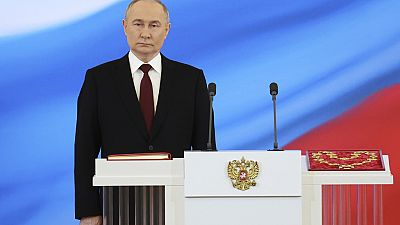

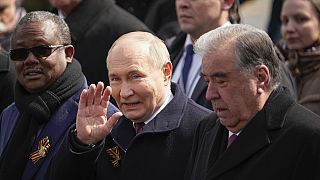
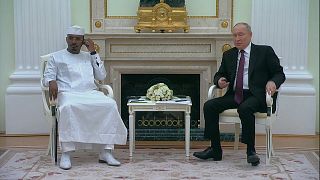
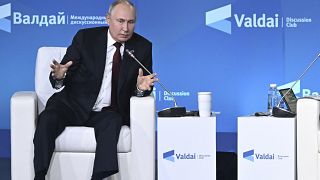
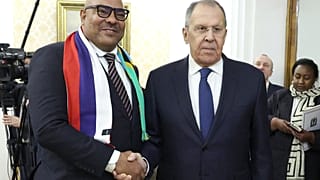
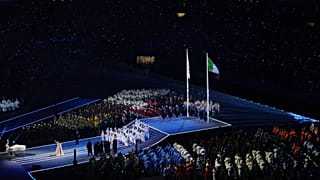
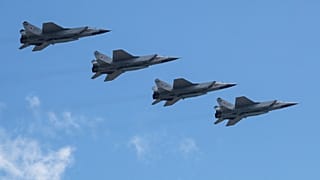
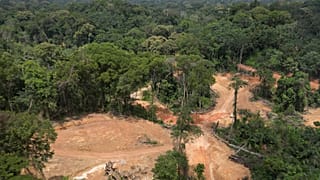
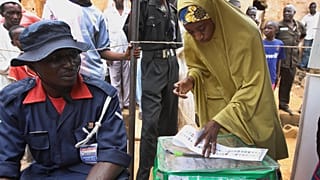
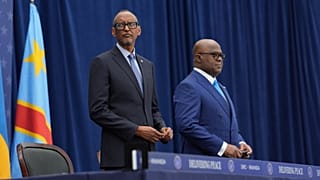
01:30
Symbolic funerals highlight kenyan losses in Russian military conflict
01:21
Haiti's presidential council steps down with no succession plan
01:49
Leader of South Africa's second largest party says he will not stand for re-election
Go to video
Amadou Oury Bah re-appointed prime minister under Guinea's new government
Go to video
Guinea: African Union lifts sanctions
00:55
Government parties get all parliament seats in Benin elections